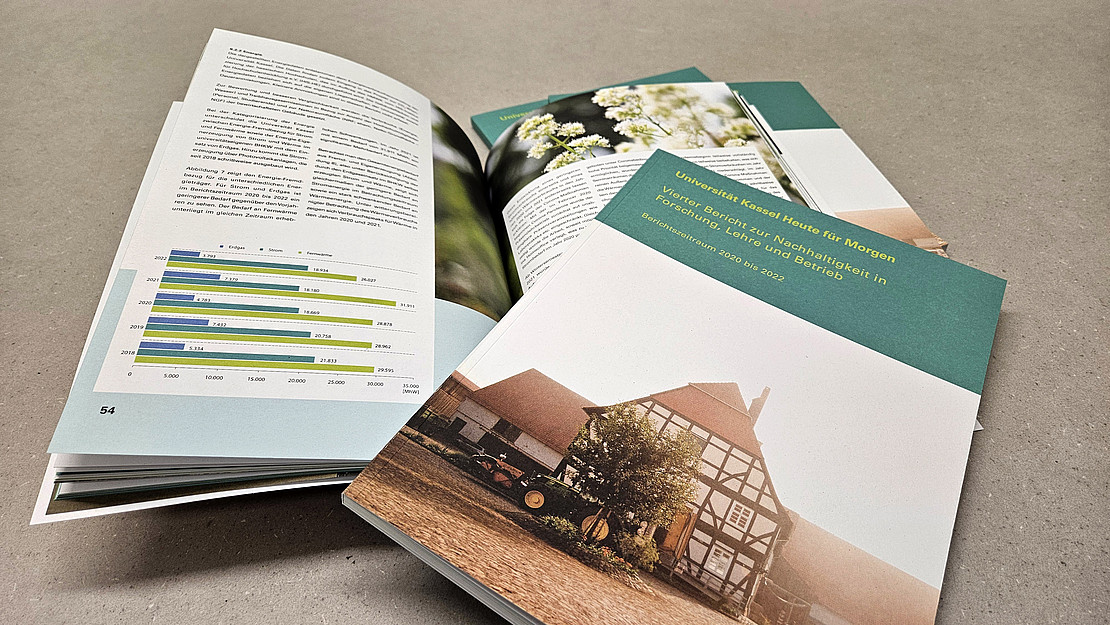Current message
The content on this page was translated automatically.
Fourth sustainability report published

It is with some melancholy that we look back on the 4th Sustainability Report, the preparation of which Prof. Dr. Alexander Roßnagel accompanied for the last time and which was first established in this form. Roßnagel retired from the University of Kassel in 2023. The integrated sustainability reporting, which was introduced in 2014, sets out the university's efforts towards sustainability and social responsibility and provides a holistic overview of strategically important topics that can hardly be considered separately from one another nowadays. Within its core tasks of research, teaching, promoting young talent and knowledge transfer, the university works on solutions for how the world can develop in an environmentally friendly, economically balanced and socially just way. In order to implement these goals, it has developed and established a reporting system with its sustainability strategy that, among other things, takes stock of the respective goals for the reporting period. This has enabled the university's sustainability management to be continuously expanded in recent years.
Integrated reporting is increasingly becoming the standard and has gained in importance at many universities in recent years. This type of reporting, which takes equal account of environmental and social activities, will affect far more companies in the future as part of mandatory sustainability reporting in accordance with CSRD and the EU Taxonomy Regulation, including many public sector institutions from 2025. It is therefore essential that a well-functioning reporting system is already in place so that it can be expanded to include the reporting content required by the directive.
In addition to the reports on research, teaching, knowledge transfer and operations, the fourth sustainability report again contains a review of the objectives for the last three years 2020 to 2022 as well as objectives for the next reporting period 2023 to 2025. The university had set itself the goal of significantly expanding its academic profile on sustainability issues in research and teaching. The number of sustainability-related subject areas, as well as the third-party funding they attract, has increased significantly. It has founded the Kassel Institute for Sustainability and appointed the first core professorships. The new center links research on various sustainability goals through appointments in the corner topics of nature, technology, culture and society and through the integration of existing research institutes into the Kassel Institute. The university was also able to significantly increase the proportion of students on sustainability-related courses compared to the total number of students at the university.
UniKasselTransfer was able to take an important first step in the transfer of knowledge by successfully acquiring funding from the federal and state "Innovative University" program. By positioning the SDG Lab in the city center of Kassel, the University of Kassel has the opportunity to involve the North Hesse region in its sustainability efforts and is developing transdisciplinary and transformative sustainability solutions in a variety of collaborations with business, administration and civil society, which are to be implemented and practiced.
In operational sustainability management, six new projects were acquired from the innovation and structural development budget of the state of Hesse (HMWK), including the establishment of a Green Office, which promotes the sustainable development of operational processes as a cross-departmental and cross-institutional task and helps to promote commitment within the university in terms of a sustainable organizational culture.
In addition to the progress made in sustainability development, the fourth report also presents the development of social sustainability and student engagement at the university in interviews on the topics of the core areas.
The printed version of the report will be published shortly and is already available at